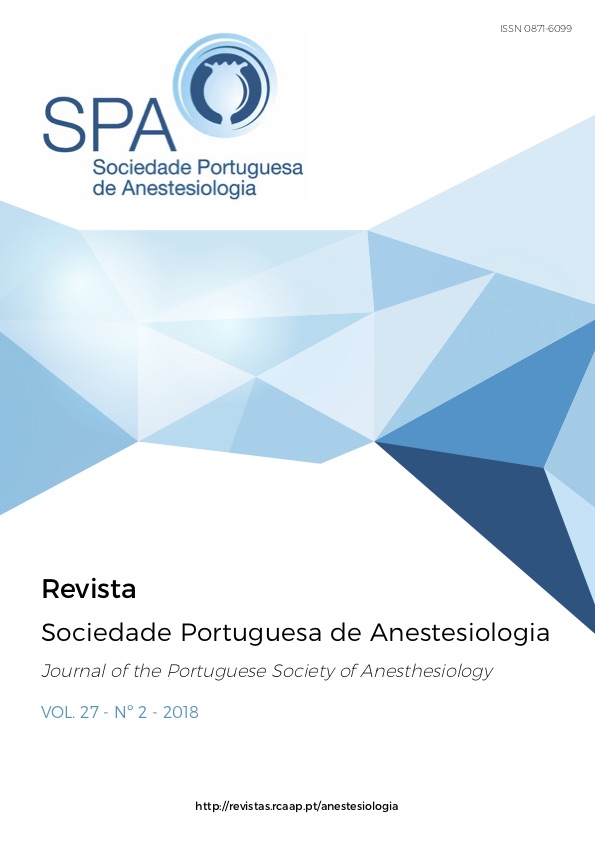Bilateral Pneumothorax, Pneumoperitoneum and Pneumomediastinum: Anesthetic Approach of Rare ERCP Complications
DOI:
https://doi.org/10.25751/rspa.14299Keywords:
Anesthesia, Cholangiopancreatography, Endoscopic Retrograde/adverse effects, Deep Sedation, Duodenum/injuries, Intubation, Intratracheal, Mediastinal Emphysema, Pneumoperitoneum, PneumothoraxAbstract
Endoscopic retrograde cholangiopancreatography (ERCP) is an increasingly used diagnostic and treatment procedure. Although rare, some complications resulting from this technique can have serious consequences for the patient, requiring early detection and systematized approach by the anesthesiologist.
The clinical case presented refers to a patient of 47 years submitted to elective ERCP by choledocholithiasis, under sedation with propofol. The exam was complicated by a false duodenal tract leading to a bilateral pneumothorax, subcutaneous emphysema, pneumoperitoneum and pneumomediastinum requiring emergent orotracheal intubation and management of the complications. The patient was transferred to the intensive care unit for surveillance under conservative measures. There was a subsequent need for surgical intervention for sepsis with an abdominal starting point.
This article aims to emphasize the importance of the presence of the anesthetist during ERCP, reviewing the patient's approach to a rare clinical picture and with important implications for morbidity and mortality.
Downloads
Downloads
Published
How to Cite
Issue
Section
License
Articles are freely available to be read, downloaded and shared from the time of publication.
The RSPA reserves the right to commercialize the article as an integral part of the journal (in the preparation of reprints, for example). The author should accompany the submission letter with a declaration of copyright transfer for commercial purposes.
Articles are published under the terms of the Creative Commons Attribution Non-Commercial License (CC BY-NC).
After publication in RSPA, authors are allowed to make their articles available in repositories of their home institutions, as long as they always mention where they were published.


